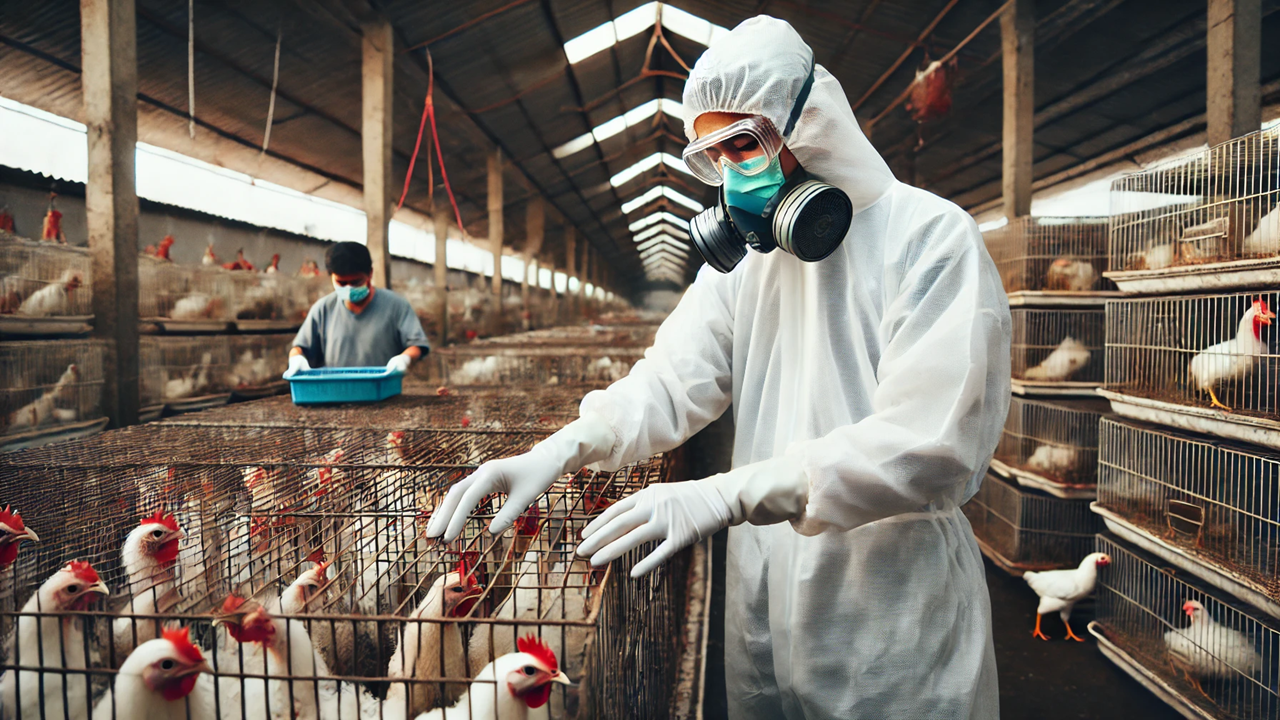NZ Proposes Stronger Biosecurity Rules to Guard Against Bird Flu Threat
Since first emerging in 2020, HPAI H5N1 has spread rapidly across much of the globe, devastating poultry flocks and threatening food security in several regions.

- Country:
- New Zealand
The Government has released new proposals for a long-term national strategy to manage the potential arrival of high pathogenicity avian influenza (HPAI) H5N1, commonly known as bird flu. Biosecurity Minister Andrew Hoggard says the aim is to safeguard New Zealand’s poultry industry, protect food supplies, and reduce risks to human health should the virus reach the country.
A Growing Global Concern
Since first emerging in 2020, HPAI H5N1 has spread rapidly across much of the globe, devastating poultry flocks and threatening food security in several regions. To date, only Australia, New Zealand, and the South Pacific remain free of the disease. However, officials caution that if the virus arrives in New Zealand, it would likely establish itself in wild bird populations before spreading to poultry and potentially other wildlife.
Minister Hoggard explained the stakes clearly:
-
For families, it could mean shortages of chicken and eggs.
-
For farmers and growers, it could bring significant costs and production losses.
-
For animal welfare, widespread illness and depopulation would become urgent concerns.
“Our focus is on protecting people’s livelihoods and keeping food on the table,” he said.
What the Proposals Include
The Ministry for Primary Industries (MPI), in collaboration with the Department of Conservation, the Ministry of Health, Te Whatu Ora | Health New Zealand, local government, and the poultry industry, has developed a set of proposals now open for public consultation. Key measures include:
-
Mandatory biosecurity programmes for commercial poultry operators, detailing how they will prevent and manage outbreaks.
-
Minimum biosecurity standards covering depopulation, disposal, cleaning, and disinfection.
-
Record-keeping and reporting requirements, ensuring accurate information during outbreaks.
-
Independent audits of biosecurity programmes to confirm compliance.
-
Penalties and fines for failure to meet biosecurity regulations.
The framework could also extend to semi-commercial and non-commercial poultry keepers, requiring them to follow approved disposal and cleaning methods, and to report bird illness to MPI.
A Consistent, Nationwide Approach
Minister Hoggard stressed that these regulations are designed to ensure a uniform standard across the industry, reduce the risk of spread, and promote early reporting of suspected cases. “We need a long-term approach that incentivises good practices, protects human health, and secures the domestic food supply,” he said.
This follows earlier efforts that have so far kept bird flu out of New Zealand. But with increasing global spread, the Minister warned that the country cannot rely on luck alone.
Economic and Industry Impacts
While the proposals would strengthen resilience, officials acknowledge they could also bring new costs for poultry operators. Farmers and growers are encouraged to provide feedback on how these measures might affect their businesses.
Hoggard emphasised that consultation is essential: “We know these proposals are likely to involve costs and other impacts. We want to hear from the sector to make sure we strike the right balance.”
Public Consultation Now Open
Consultation opened on 17 September 2025 and will run until 2 November 2025. MPI has released discussion documents and submission guidelines on its website, inviting farmers, growers, industry stakeholders, and the public to contribute.
The Minister urged participation: “By working together now we can reduce the risks of bird flu—preventing food shortages, protecting people’s livelihoods, and safeguarding health outcomes. This is your chance to make sure New Zealand is ready.”








